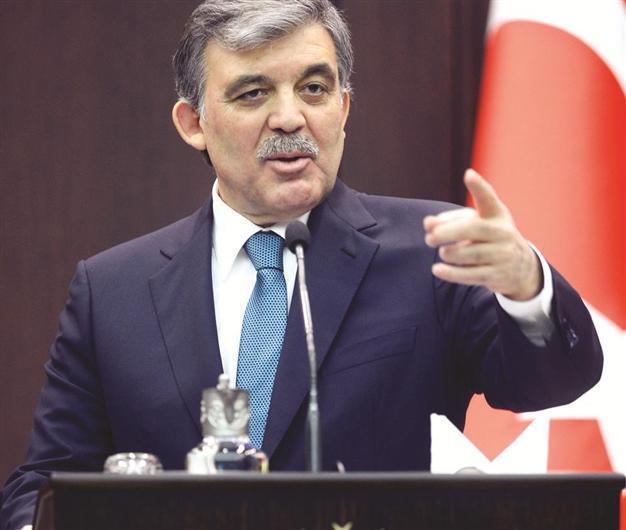Turkish President Gül highlights rights of the faithless
ANKARA

The state should keep an equal distance on the issue of the use of freedom of religion and conscience, President Abdullah Gül has said in a
written statement. CİHAN photo
Secularity is the most important condition for the protection of societal peace, President Abdullah Gül has stated, highlighting the importance of the state keeping an equal distance to followers of all faiths, as well as the faithless.
“The state’s keeping equal distance on the issue of the use of freedom of religion and conscience, and its prevention of pressures that may be put on different lifestyles, is one of the indispensable requirements of democracy, which is a system of rights and freedoms,” Gül stated on Feb. 5. His words came as part of a written message delivered on the 77th anniversary of the recognition of secularity as a constitutional principle of the Turkish Republic.
“Secularity foresees the state’s being impartial in the face of all religions and sects, faith groups and the faithless. No doubt, such understanding makes it possible for all beliefs and faiths to live together with their own differences; in tolerance and dialogue,” he added.
Social contracts “Problems that have been subject to debate for many years are now being resolved through social contracts,” the president stated, emphasizing the contribution of "fundamental reforms made in recent years in strengthening Turkey’s place among contemporary democracies."
Marking the same occasion, Prime Minister Recep Tayyip Erdoğan, delivering a separate message, recalled that the Republic of Turkey is described in the Constitution as a democratic, secular and social state governed by the rule of law.
“These fundamental principles should not be interpreted in a disintegrating, alienating and excluding way. On the contrary, they should be interpreted in a unifying and integrating way. In our recent history, wrong practices, particularly concerning the principle of secularity, led to polarization and tension in our society,” Erdoğan said.
He also claimed that democratic reforms led by his government would eventually expand freedoms and strengthen the feeling of social belonging for the people of Turkey.
I'm already in charge, Gül says
President Abdullah Gül has sought to respond to suggestions that he should become more directly involved in solving the ongoing political turmoil, stressing that he was already engaged in obvious and visible efforts to help sooth tension, which are clear before the eyes of the public.
“Am I not on duty? You said some had ‘called me to duty.’ You see, by all manner of means, that my statements, interventions, speeches and contacts are not hidden. They are being done before the whole public,” Gül said on Feb. 5 during a joint press conference with visiting Romanian President Traian Basescu.
His remarks came after he was asked by a reporter to comment on a Feb. 3 statement by the Journalists and Writers Foundation (GYV), which is affiliated to the movement of Islamic scholar Fethullah Gülen. The statement urged him to intervene in order to prevent “an important part of society from being subjected to political and social lynching,” and said the president should “take action” over what it described as the government’s interventions in the ongoing graft investigations.
“We call on the president to observe his duty to prevent the constitutional order, the independence of the judiciary, and the rule of law from being put at risk,” GYV President Mustafa Yeşil said in a press statement.
After being reminded by a reporter of his Feb. 2 meeting with main opposition Republican People’s Party (CHP) deputy Erdal Aksünger, known for his expertise in information technology, Gül was also asked whether he would assign the State Audit Board (DDK), which operates under the authority of the presidency, to work on the issue of illegal wiretapping.
Gül said that Aksünger had requested an appointment in order to discuss a report on the protection of personal data that was drafted by the DDK.
